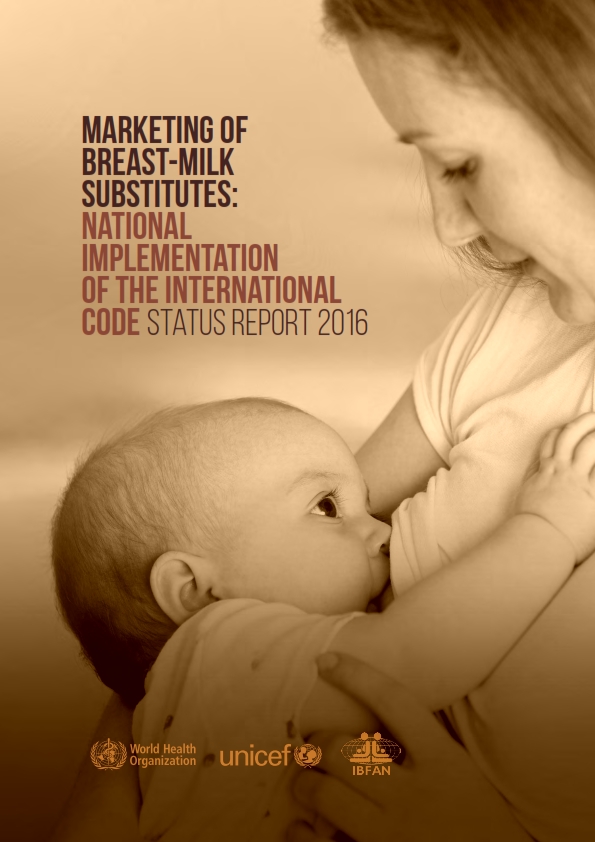The status of national laws to protect and promote breastfeeding are revealed with a new report
On 9 May 2016 – A new report by the World Health Organization (WHO), UNICEF, and the International Baby Food Action Network (IBFAN) reveals the status of national laws to protect and promote breastfeeding. WHO and UNICEF recommend that babies are fed nothing but breast milk…
 On 9 May 2016 – A new report by the World Health Organization (WHO), UNICEF, and the International Baby Food Action Network (IBFAN) reveals the status of national laws to protect and promote breastfeeding.
On 9 May 2016 – A new report by the World Health Organization (WHO), UNICEF, and the International Baby Food Action Network (IBFAN) reveals the status of national laws to protect and promote breastfeeding.
WHO and UNICEF recommend that babies are fed nothing but breast milk for their first 6 months, after which they should continue breastfeeding—as well as eating other safe and nutritionally adequate foods—until 2 years of age or beyond. The World Health Assembly adopted the International Code of Marketing of Breast-milk Substitutes in 1981 to protect and promote breastfeeding, through the provision of adequate information on appropriate infant feeding and the regulation of the marketing of breastmilk substitutes, bottles and teats. The Assembly also committed to increase the rate of exclusive breastfeeding in the first 6 months of life to at least 50% by 2025 as one of a set of six global nutrition targets, however, globally, nearly two out of three infants are not exclusively breastfed for the recommended 6 months.
The report identifies the status of implementing the International Code of Marketing of Breast-milk Substitutes and subsequent relevant World Health Assembly resolutions in and by countries. It presents the legal status of the Code, including – where such information is available – to what extent Code provisions have been incorporated in national legal measures. It also provides information on the efforts made by countries to monitor and enforce the Code through the establishment of formal mechanisms. Its findings and subsequent recommendations aim to improve the understanding of how countries are implementing the Code, what challenges they face in doing so, and where the focus must be on further efforts to assist them in more effective Code implementation.
Of the 194 countries analysed in the report, 135 have in place some form of legal measure related to the International Code of Marketing of Breast-Milk Substitutes and subsequent, relevant resolutions adopted by the World Health Assembly (the Code). This is up from 103 in 2011, when the last WHO analysis was done. However, only 39 countries have laws that enact all provisions of the Code—a slight increase from 37 in 2011.
CLICK HERE for web stream of the launch event
CLICK HERE for press release on WHO website
CLICK HERE for the new report
CLICK HERE to learn about the recently launched Lancet Series on Breastfeeding